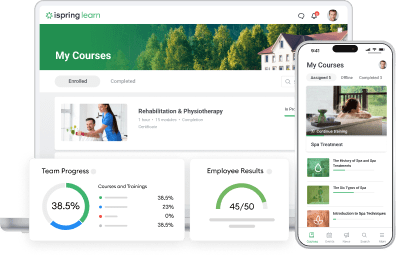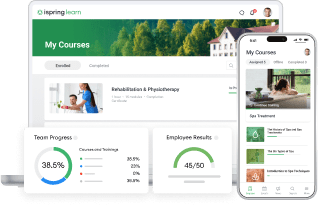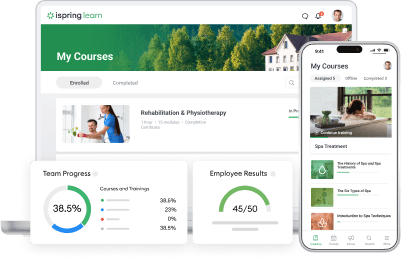7 Innovative EdTech Companies Transforming Education

Picture the world’s largest classroom: no walls, no time zones, and no one-size-fits-all teaching. Each student’s journey unfolds on their own schedule, in their own style, with tools that respond as quickly and intuitively as a personal mentor. This is the reality that today’s most innovative EdTech companies are building. They empower students and educators to break free from outdated approaches and engage in effective next-gen learning.
We’ve put together a list of the top 7 EdTech companies that are changing the game for K-12 schools, higher education organizations, and even businesses. Use it as a guide to finding the right online learning platform for building the perfect educational environment for your specific needs.
What Does EdTech Do?
EdTech, short for educational technology, uses digital tools and platforms to improve the teaching and learning process. This includes online courses, interactive software, live online classes, and remote learning applications that track student progress and provide personalized feedback. Through integrating these resources into formal and informal education, EdTech aims to make learning more accessible, flexible, and engaging for a wide range of learners.
How Are EdTech Companies Changing the Way We Learn?
Learning used to be confined to physical classrooms with fixed schedules and standardized teaching methods. Students relied heavily on textbooks and lectures, practically forced to all progress at the same pace regardless of individual needs. Besides, access to education was limited by geographic location and available resources. EdTech changed the picture completely by providing the following capabilities and benefits:
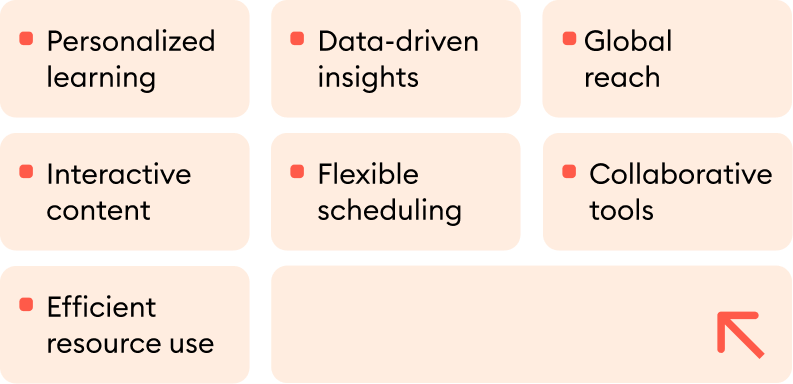
- Personalized learning. Online learning platforms make it easy to adapt content and learning plans to individual skill levels, allowing learners to progress at their own pace with various learning paths.
- Data-driven insights. Educators can now track performance metrics in real time and tailor their programs based on immediate learner feedback.
- Global reach. Students and professionals can access top-quality education from anywhere: all they need is an internet connection.
- Interactive content. Simulations, virtual labs, and gamified elements encourage hands-on learning and greater engagement.
- Flexible scheduling. On-demand modules and self-paced courses accommodate busy schedules, making education more accessible and convenient.
- Collaborative tools. Online forums, group projects, and digital whiteboards connect learners and experts around the world.
- Efficient resource use. Digital platforms reduce costs related to physical materials and optimize administrative tasks like enrolling learners, assigning courses, or even grading tests.
Who can benefit from implementing an online learning platform?
EdTech solutions are reshaping how students and professionals engage with learning material across a wide range of educational settings:

K-12 schools
In K-12 schools, adopting an online learning platform helps young learners progress through various assignments, pinpointing trouble spots and offering specific exercises to help them succeed. Teachers use data dashboards that highlight individual progress, so they can adjust lessons for better student outcomes and ensure that those who need extra support don’t fall behind. This is especially beneficial for high school students who are preparing for college entrance exams — they can focus on areas where they need the most improvement.
Colleges and universities
At universities, students can go beyond writing academic papers and effectively apply theory through highly realistic simulations with the help of online platforms. For instance, business students use virtual stock markets to learn trading strategies without risking real capital, and engineering students refine bridge designs in digital environments, testing structural integrity under different conditions. This hands-on approach allows learners to experiment, make mistakes, and improve before transitioning into real-world scenarios.
Besides, higher education institutions rely on online lectures and interactive course materials available from a laptop or even a smartphone. This helps educational institutions reach learners worldwide and expand access to top-quality programs well beyond traditional campus boundaries.
Businesses
Corporate training departments also need to make use of on-demand learning modules that employees can access anytime, anywhere. Instead of attending scheduled workshops, teams complete self-paced courses, ensuring that skill development fits neatly into their busy schedules. Gamification elements, like badges or leaderboards, help motivate employees and improve retention of key information for professional development.
Nonprofits
In nonprofit and community programs, mobile apps and online courses can extend educational opportunities to remote regions. By bridging geographical and socioeconomic divides, educational technology platforms empower learners to gain new skills, whether they’re preparing for advanced careers or simply seeking personal growth.
Regardless of the context, these technologies work together to create more flexible, engaging, and effective learning environments.
Types of EdTech Companies
No two EdTech companies are alike. Different providers cater to different learning goals, experiences, and areas of learning. Here’s a rundown of 7 major types of EdTech platforms based on their functionality and the specific educational needs they address:
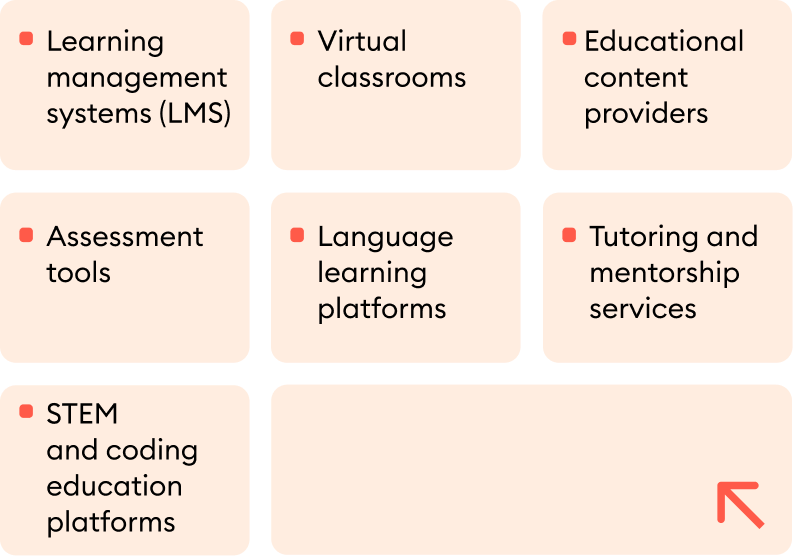
Learning management systems (LMS)
A learning management system is a comprehensive platform that helps you organize, implement, and manage online learning in various settings. This includes corporate training, K-12 education, higher education institutions, and professional development programs. An LMS automates training, centralizes training materials, facilitates collaboration, and allows you to track learner progress.
LMSs are a great choice for teams and organizations that want to make training easier to manage, keep everyone on track, and deliver engaging and effective learning for all members.
Also read: The Best Corporate LMSs
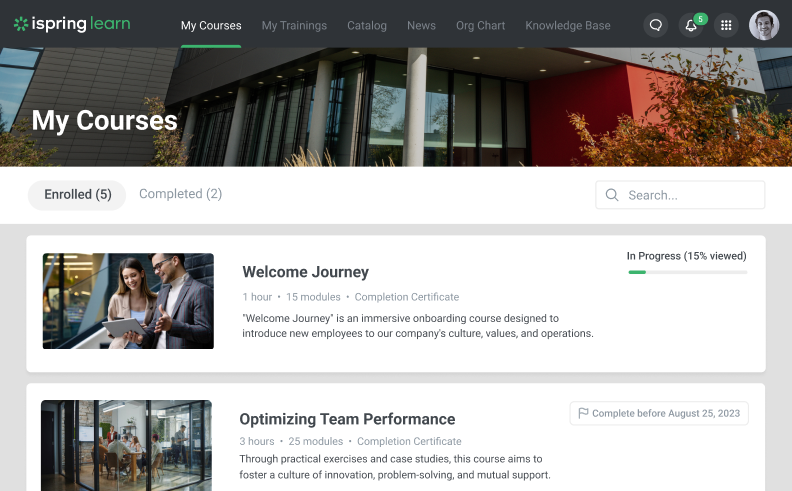
Virtual classrooms
Virtual classrooms enable real-time teaching and learning through video conferencing, interactive whiteboards, and collaborative tools. They allow educators and learners to connect from anywhere and meet for live lectures, discussions, and group activities that mimic the traditional classroom experience digitally.
Video conferencing tools saw a huge rise in popularity during the Covid-19 pandemic: they helped teachers and students stay connected for remote learning while also enabling businesses and organizations to hold virtual conferences and keep their teams collaborating without the need for physical meetings. Today, this type of EdTech software is a normal part of our daily lives.

A group of people on a Zoom video call. Source: https://www.zoom.com/
Educational content providers
Education is no longer confined to the walls of college campuses, thanks to online educational content providers. Essentially, an educational content provider is an online marketplace with a wide range of courses and programs you can purchase (or sometimes access for free) and enroll in digitally. You can take courses with certified teachers from the best educational institutions in the world or even get an official degree without leaving your home.
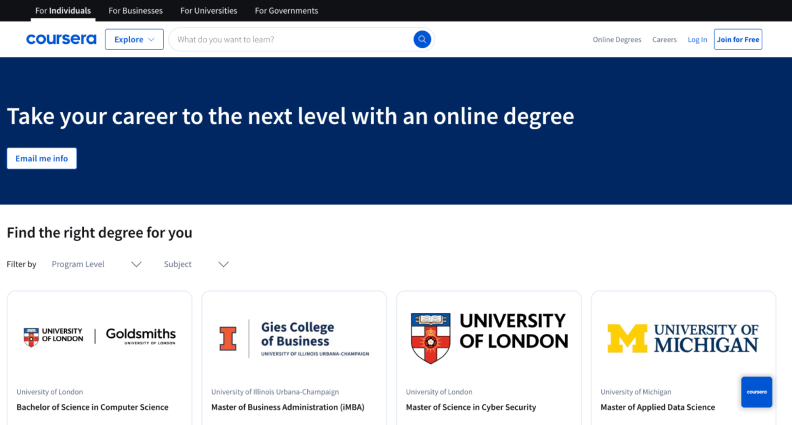
Coursera home page. Source: https://www.coursera.org/
Assessment tools
Teachers used to spend a lot of time grading quizzes individually. Now, thanks to assessment tools, they can automatically grade many types of questions for many students at the same time, saving valuable time, which allows them to focus more on personalized instruction and support their students’ unique needs.
These EdTech tools also allow educators to create, deliver, and analyze assessments to measure learner performance and outcomes at scale. With assessment platforms, building various types of quizzes or tests and grading them is easier and faster than ever. Besides, the tools help provide immediate feedback to students and generate detailed reports to gain a deep understanding of their strengths and growth areas.
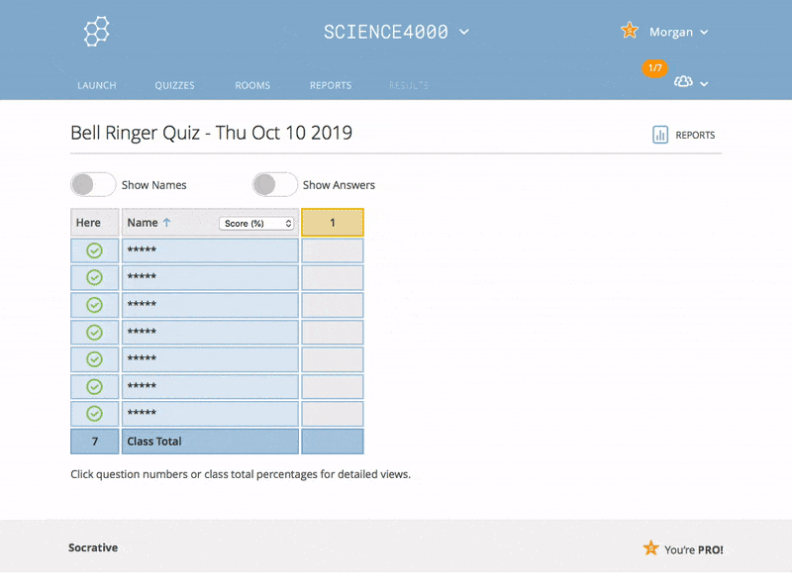
A quiz report in Socrative. Source: https://www.socrative.com/
Language learning platforms
These EdTech apps and tools focus on teaching new languages through interactive lessons, exercises, and immersive learning experiences with high learner engagement. They provide a wide range of exercises, from flashcards for memorizing new words to conversational practice with peers and AI chatbots.
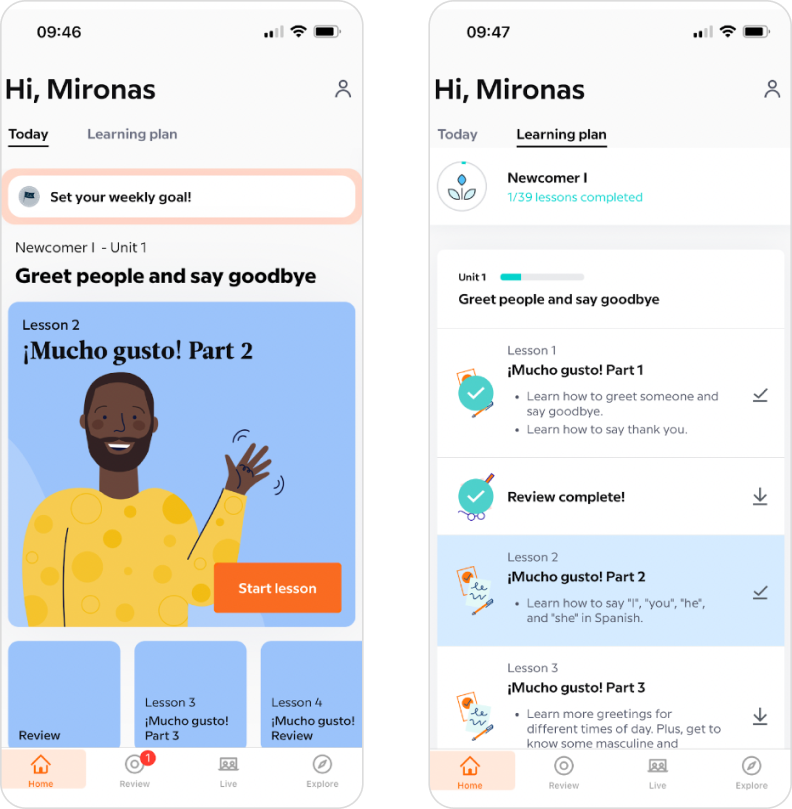
The Babbel language learning app interface. Source: https://www.babbel.com/
Tutoring and mentorship services
Tutoring education apps and platforms provide learner assistance by connecting students with qualified tutors for personalized support. They help learners understand challenging subjects, prepare for exams, and improve their academic performance through one-on-one sessions and tailored lesson plans. Tutoring platforms typically choose tutors through thorough vetting processes that assess qualifications, experience, and subject expertise to ensure that students receive reliable help.
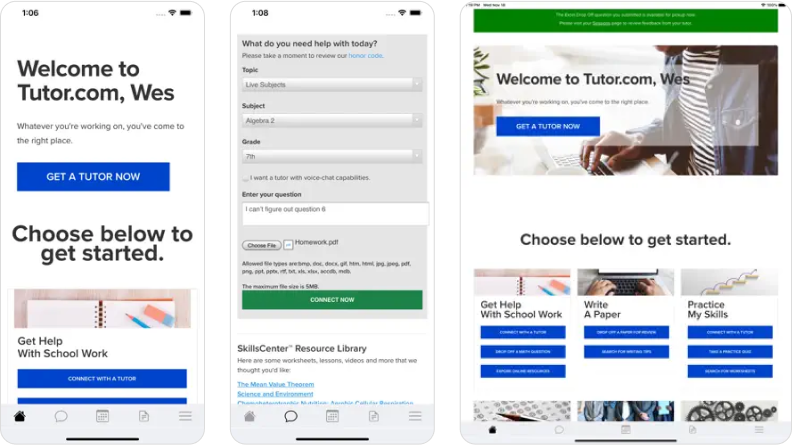
The Tutor.com interface. Source: https://www.tutor.com/
STEM and coding education platforms
STEM and coding education platforms specialize in teaching science, technology, programming languages, engineering, and mathematics through interactive projects and coding exercises. This area of EdTech is growing actively as more and more students are choosing to start careers in technology and science-related fields.
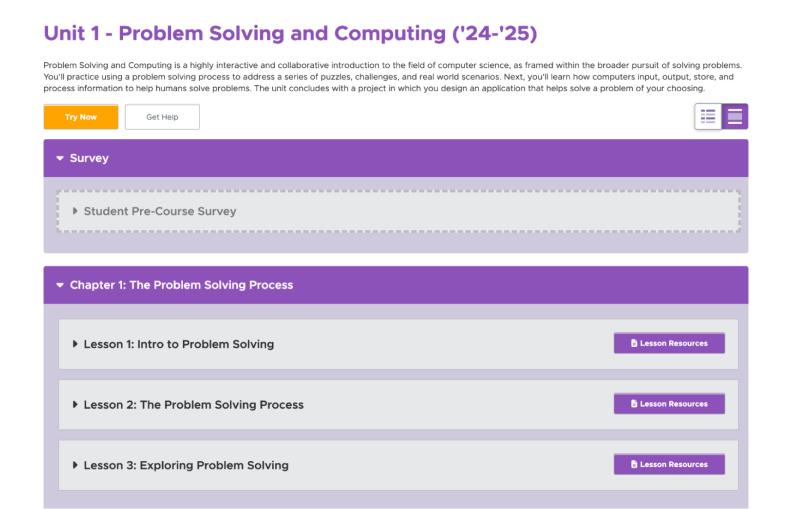
A computer science course in Code.org. Source: https://studio.code.org/
You can compare major types of EdTech companies in this table:
Type of EdTech Platform | Description | Examples | Best For | Key Features |
Learning Management Systems (LMSs) | Platforms for organizing, delivering, and tracking educational courses and training programs. | iSpring Learn, Moodle | Schools, universities, corporate training | Course management, progress tracking, integration with other tools |
Virtual Classrooms | Facilitate real-time online teaching and learning through video conferencing and interactive tools. | Zoom for Education, Microsoft Teams | Remote learners, live instruction | Video conferencing, interactive whiteboards |
Educational Content Providers | Create and distribute digital learning materials such as e-books, video lessons, and interactive modules. | Khan Academy, Coursera | Self-paced learners, supplementary education | Extensive libraries, multimedia content, accessible anytime |
Assessment Tools | Tools for creating, administering, and analyzing assessments to measure performance and outcomes. | Quizlet, Socrative | Educators, administrators | Custom quizzes, data analytics, performance reporting |
Language Learning Platforms | Focus on teaching new languages through interactive lessons, practice exercises, and immersive experiences. | Duolingo, Babbel | Language learners, travelers | Interactive lessons, speech recognition, progress tracking |
Tutoring and Mentorship Services | Connect students with tutors or mentors for personalized academic support and guidance. | Tutor.com, Chegg Tutors | Students needing extra help, mentorship seekers | One-on-one sessions, flexible scheduling, subject-specific expertise |
STEM and Coding Education | Specialize in teaching science, technology, engineering, and mathematics through hands-on projects and interactive tools. | Code.org, Tynker | Students interested in STEM, coding beginners | Interactive coding exercises, project-based learning, STEM kits |
Many educators and organizations use a mix of these EdTech platforms to meet their goals. A teacher might combine an LMS to organize classes together with a gamified app to keep students engaged. Similarly, a business could use corporate training platforms alongside coding education tools to upskill tech employees effectively.
The great news is that many EdTech platforms, especially modern LMSs like iSpring Learn, combine the features of several types of EdTech tools and integrate with other software — you won’t need to switch between platforms to make the most of your learning experience.
Bottom line: by combining different technologies, you can create a more dynamic and effective learning experience that helps you achieve your goals.
The eLearning Industry’s Top 7 EdTech Companies
Here’s a list of 7 EdTech companies to watch and implement in your learning initiatives in 2025.
1. iSpring Solutions
Year founded: 2001
Type: Learning management system with a built-in authoring tool and course library
Remarkable innovations and features:
- AI-powered online course creator
- Integrations with major video conferencing tools, CRM, HRIS, proctoring platforms, and more
- Smart learning gamification mechanics
- Comprehensive training management automation
- Award-winning customer support
Best for: individuals, teams, and businesses looking to grow and succeed through effective skill development; instructional designers and course creators.
iSpring Solutions is a forward-thinking eLearning software provider with 20+ years in the market. The company’s mission is to empower learners, educators, and businesses through digital learning technologies and training solutions designed to drive measurable success. iSpring has already served 61,000+ clients in 170+ countries, including Fortune 500 companies in various industries and sectors.
iSpring offers a comprehensive suite of online learning tools, including:
- iSpring Learn, an LMS for launching, delivering, and managing online training.
- iSpring Suite, a PowerPoint-based authoring tool with a built-in AI assistant and a library of 127,000 ready-to-use course creation assets.
- iSpring Academy, an educational branch that specializes in customer education, custom course development, and resources for eLearning professionals and enthusiasts. iSpring Academy organizes expert webinars, online conferences, and intensive training programs for educators and learners.
In other words, iSpring Solutions powers the entire online learning lifecycle, providing educators and organizations with the tools and resources needed to create, deliver, and manage high-quality, engaging training programs effectively. The company rolls out regular software updates, makes sure to stay on top of eLearning trends, and prioritizes a positive user experience from start to finish.
What sets iSpring Solutions apart from other EdTech software companies is its excellent customer education and support. This includes 24/7 award-winning tech support, an on-demand Customer Success Manager, and thousands of free resources available in iSpring’s Knowledge Hub.
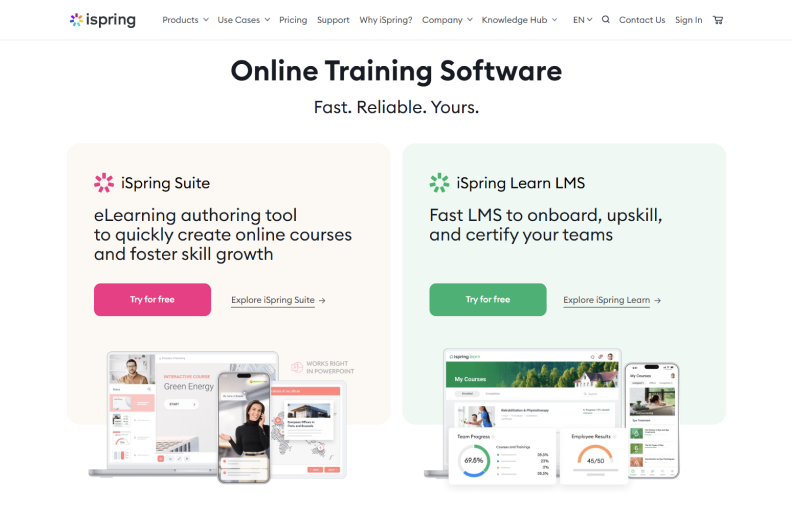
The iSpring Solutions website home page
2. Udemy
Year founded: 2010
Type: Educational content provider, online learning marketplace
Remarkable innovations and features:
- Extensive course library covering a wide range of subjects and skills
- Data-driven personalized learning recommendations
- Certification of completion
- Curated course content for corporate training and employee development
- Community features
Best for: those seeking personal and professional development across diverse fields; professionals wanting to share their knowledge and monetize their expertise.
Udemy is one of the top EdTech companies, providing a wide range of courses and educational programs for skill development. Udemy offers 250,000+ courses in over 50 languages, both for individuals and organizations. 75 million learners have already used Udemy’s offerings to gain new skills, advance their careers, and pursue personal interests.
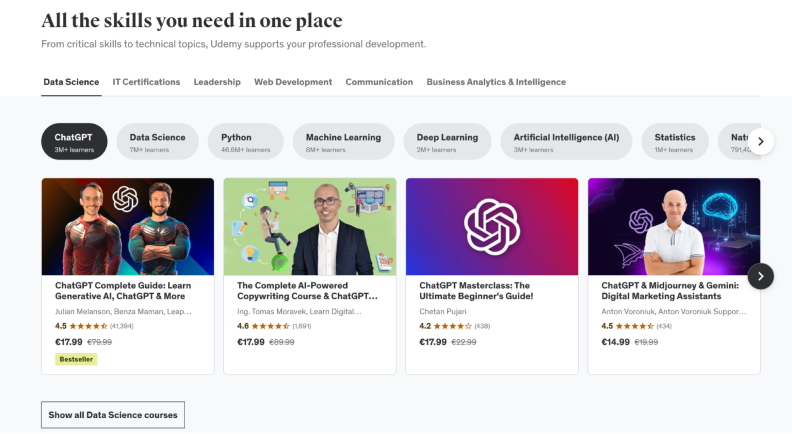
The Udemy website home page.
Udemy’s major strength is its user-friendly platform. This allows for flexible, self-paced learning, making education accessible to people around the world regardless of their schedules or locations. The company has an extensive resource hub where you can find research, guides, and webinars on L&D, skill development, and leadership.
This EdTech company also offers a corporate training solution, Udemy Business. The platform provides organizations with access to a curated library of high-quality courses and helps businesses achieve their growth objectives by building a culture of learning.
3. Anthology (ex. BlackBoard)
Year founded: 1997
Type: Integrated solution for higher education
Remarkable innovations and features:
- Next-gen student information systems (SISs) for student data management and administrative processes
- Integrated LMS
- Predictive analytics for personalized student experiences
- Integrations with existing campus technologies and third-party applications
Best for: Higher education institutions seeking integrated solutions to automate operations and enhance the student experience.
This next-generation EdTech platform is recognized as one of the fastest-growing EdTech companies in the industry. Anthology provides solutions and services tailored to higher education institutions, including student information systems, learning management, and customer relationship management tools.
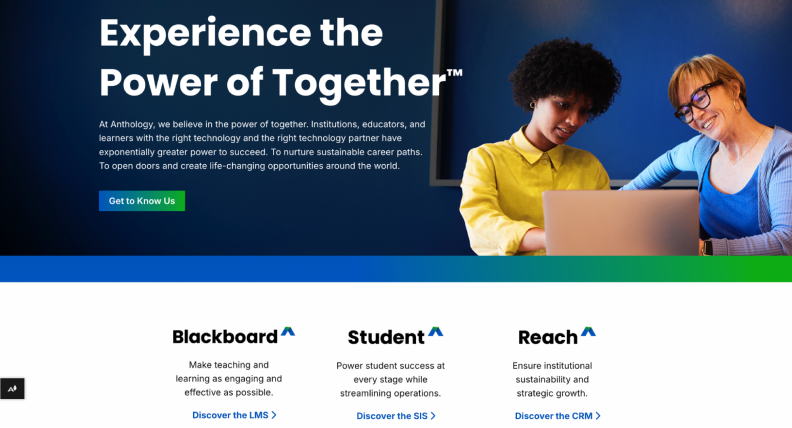
The Anthology website.
Even if you haven’t heard about Anthology, you’re very likely to be familiar with Blackboard, a popular LMS used widely in schools and universities. In 2021, the companies announced a merger to “create the most comprehensive and modern EdTech ecosystem at a global scale for education.” Today, Anthology boasts an integrated platform that serves thousands of institutions worldwide, offering advanced tools for learning management, student information systems, and data analytics.
Educators love its familiar environment and on-point tools that make managing courses, tracking student progress, and syncing data with institution platforms easy and quick. Students enjoy interactive features and personalized learning paths that make their educational journey more dynamic. Anthology is also actively implementing AI on its platform. For example, teachers can use generative AI for lesson planning, course building, and student progress tracking.
4. GoStudent
Year founded: 2016
Type: Online tutoring and mentorship platform
Remarkable innovations and features:
- AI-powered tutor matching
- Interactive virtual classroom
- On-demand and scheduled tutoring sessions
- Detailed reports and performance analytics for students and parents
Best for: Students in need of personalized, flexible, and effective tutoring to improve their academic performance.
GoStudent is one of the most successful EdTech startups of recent years. It provides a platform that connects students with expert tutors for personalized, one-on-one lessons in a wide range of subjects. From homework assistance to exam preparation and skill-building, GoStudent offers comprehensive support to help students excel academically.
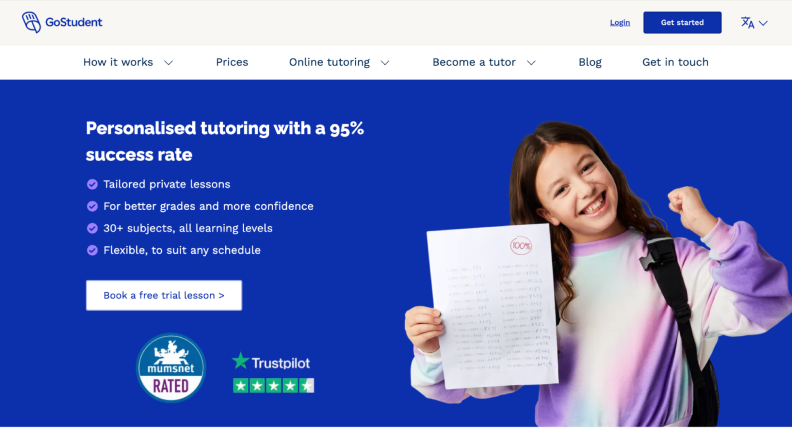
The GoStudent website home page
The GoStudent platform offers classes in 30+ subjects and collaborates with over 20,000 tutors around the world. Every tutor goes through a vetting process to prove they have the necessary qualifications and teaching skills for providing students with reliable and high-quality support. A collaborative approach to tutoring sessions ensures that both students and tutors actively engage in the learning process, communicate openly, and achieve better academic outcomes and increased confidence.
Over the years, GoStudent has acquired several other services, such as AI-based content platform Seneca Learning, tutoring marketplace Tus Media, and offline tutoring company Studienkreis. These acquisitions have helped GoStudent enhance its services with AI-driven learning tools, a broader selection of tutoring options, and robust reporting capabilities.
5. freeCodeCamp
Year founded: 2014
Type: Coding education platform
Remarkable innovations and features:
- An entirely free curriculum
- Hands-on coding challenges and projects that allow learners to apply their skills in real-world scenarios
- Strong community support with mentorship and collaboration opportunities
Best for: Individuals seeking accessible, high-quality coding education without financial barriers.
freeCodeCamp stands out from other leading EdTech companies by providing a free, structured pathway to learning coding and software development. Its interactive platform and project-based approach help learners gain practical experience, while the supportive community offers collaboration and continuous growth. Whether you’re starting your coding journey or want to upgrade your technical expertise, freeCodeCamp offers resources, reference materials, and an environment that will help you succeed.
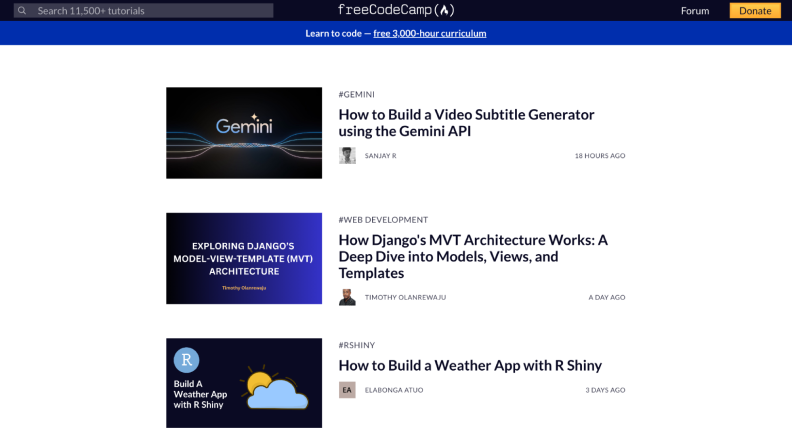
The freeCodeCamp resource page.
With freeCodeCamp, you can create coding projects right in your browser, code editor, or mobile app, complete with detailed instructions. The platform also provides free certifications of completion that learners can present to prospective employers. freeCodeCamp prides itself on having helped thousands of people get IT jobs globally.
6. Rosetta Stone
Year founded: 1992
Type: Language learning platform
Remarkable innovations and features:
- Immersive learning methods that mimic how people learn their native language
- TruAccent speech recognition that helps learners perfect their pronunciation by providing real-time feedback
- Live tutoring sessions
Best for: People seeking a comprehensive and immersive method to learn a new language, from beginners to advanced learners.
Rosetta Stone is one of the oldest and biggest EdTech companies in the market. It stands out in the language learning industry by offering an immersive and intuitive approach that closely mirrors natural language acquisition. While other big players like DuoLingo are popular for their gamified approach, Rosetta Stone provides a more structured learning experience.
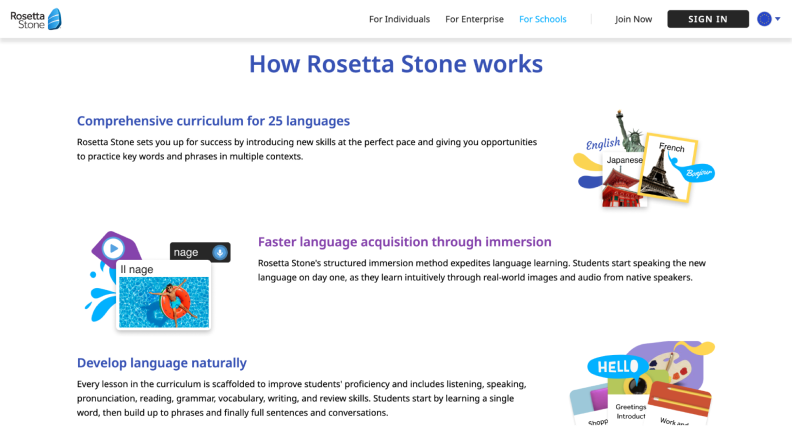
The Rosetta Stone website page
The platform’s comprehensive content and well-rounded curriculum cater to learners seeking a more in-depth and thorough language education. Rosetta Stone is also known for its innovative TruAccent technology that ensures learners develop accurate pronunciation. The flexibility of multi-device access allows for learning anytime, anywhere. Additionally, live tutoring sessions provide real-time practice and help learners overcome the fear of speaking a new language. These features make Rosetta Stone a strong choice for those serious about mastering a new language beyond a casual learning experience.
7. MasterClass
Year founded: 2015
Type: An online education platform featuring classes taught by experts and celebrities
Remarkable innovations and features:
- Courses led by world-famous experts in various fields
- High-quality production that enhances engagement
- Interactive assignments with practical exercises and projects
Best for: Those interested in learning from top industry leaders and gaining inspiration in their chosen fields.
MasterClass has made waves in EdTech by providing access to world-class instructors who share their expertise through engaging, visually stunning courses. The platform focuses on high-quality videos and thorough content, making learning both engaging and insightful.

The MasterClass home page
Whether you want to perfect your cooking with a famous chef like Gordon Ramsay or learn top photography skills from Annie Leibovitz, MasterClass is the perfect place to learn from the best and develop your expertise in a variety of areas. Interactive projects and home assignments help learners practice new skills right away and apply their knowledge in real life.
Also read: 35 Top eLearning Experts to Follow
What makes the platform especially well-loved is its commitment to social impact: MasterClass promotes diversity and inclusion and organizes charity projects across the USA.
Conclusion
Whether you’re a student, educator, or professional, there’s a tool out there to help you reach your learning goals more effectively and enjoyably — that’s exactly what the best EdTech companies aim to do. Go ahead and try different platforms, experience first-hand how data science and AI redefine modern education, and take full advantage of these solutions to enhance your personal and professional skills.
If you’re not sure where to start your eLearning journey, explore iSpring Solutions. Try creating stunning courses with iSpring Suite’s free trial, book a free demo of the iSpring Learn LMS, or browse insightful webinars from iSpring.





